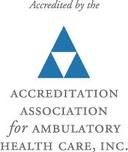Inadequate training and poor judgment account for a disproportionate number of complications and unsatisfactory results that occur annually from cosmetic surgery procedures. With so many different types of doctors doing cosmetic surgery, how can one make a safe and wise choice? In days gone by, the use of the terms such as ‘board-certified’ and ‘specializing in’ were enough to demonstrate to the public a doctor’s expertise, but today that is not enough. Often these physician descriptors can actually be confusing and even deceiving.
I would advise potential patients to research the following categories for any cosmetic surgeon that they are going to see. Some but not all of information can be obtained but doing a little research online.
What Are They Board-Certified In?

In established medicine, board certification is the result of doctors being educated through long-established training programs sanctioned by the American Board of Medical Specialties. This governing board sets the standards for the education, training and testing of doctors. Of the 24 recognized specialties and boards, plastic surgery is one of them but cosmetic surgery is not. Years of residencies done in hospitals under experienced physician mentors is what is needed to qualify for plastic surgery board certification. Cosmetic surgery allows one to use their basic training in any medical specialty, with or without some private training, to quality for their boards. This is why knowing whether the doctor has hospital privileges for certain cosmetic procedures is so valuable to know. (if you can access that information)

How Often Does The Doctor Do Your Procedure of Interest?
This is a hard piece of information that is not easy to ascertain. Certainly asking the doctor seems the most obvious route to learning how many they have done, but that is not the exclusive source I would use. Look at their websites and see how many before and afters of the procedure are posted. Ask for before and after photographic results and to talk to some more recent patients. (done in the past 3 to 6 months) Word of mouth still remains as a good method of recommendation. Willingness to easily and quickly divulge this information is a good sign. Hesitancy or avoidance of doing so would be of concern.
The premise of asking or having an idea of how often the surgeon performs the procedure has, at its foundation, that there is some magical number. In reality, there is no specific number for any procedure but it should suggest some degree of frequency of it being performed. This will vary based on the type of cosmetic surgery procedure and how commonly it is requested and performed on a more global basis.
Is The Surgery Being Done In a Nationally Accredited Facility?

Who Is Doing The Surgery?
I am often surprised after a long consultation that a new patient asks me if I would be doing their surgery. Not understanding who else would be (and having had this long discussion why I would let someone else do it), I have come to learn that this may not always be standard practice. In some cosmetic practices or centers, most of the interaction may be done with other people than the surgeon themselves or they may not see the surgeon until the day of the surgery. Insist that you meet with the ‘real’ surgeon before the day of surgery.
Is The Lowest Cost A Good Choice?
The cost of cosmetic surgery is always of concern and no one wants to overpay for their procedure(s). But the cost of cosmetic surgeries is influenced by market factors just like any other retail business. This makes a fairly consistent price range for procedures in any given geographic region. If after getting several consultations one price is considerably lower than another, the question should be why. Where are the costs being reduced to offer such a lower price? This is what makes the whole concept of Groupon and other discount programs for cosmetic surgery so unnerving. (or they should be to patients)
Dr. Barry Eppley
Indianapolis, Indiana


